Manuál Hikoki DS 14DSDL Akušroubovák
Potřebujete manuál pro svůj Hikoki DS 14DSDL Akušroubovák? Níže si můžete zdarma prohlédnout a stáhnout PDF manuál v češtině. Tento produkt má aktuálně 3 často kladené otázky, 0 komentářů a má 0 hlasů. Pokud toto není manuál, který chcete, kontaktujte nás.
Je váš výrobek vadný a manuál nenabízí žádné řešení? Přejděte do Repair Café a získejte opravu zdarma.
Manuál
Loading…

Loading…
Hodnocení
Ohodnoťte Hikoki DS 14DSDL Akušroubovák a dejte nám vědět, co si o výrobku myslíte. Chcete se podělit o své zkušenosti s tímto výrobkem nebo se na něco zeptat? Nechte nám ve spodní části stránky komentář.Více o tomto návodu
Chápeme, že je hezké mít k vašemu Hikoki DS 14DSDL Akušroubovák papírovou příručku. Manuál si můžete vždy stáhnout z našich webových stránek a vytisknout si jej sami. Pokud byste chtěli mít originální příručku, doporučujeme vám kontaktovat Hikoki. Možná by byli schopni poskytnout originální návod. Hledáte příručku ke svému Hikoki DS 14DSDL Akušroubovák v jiném jazyce? Vyberte si preferovaný jazyk na naší domovské stránce a vyhledejte číslo modelu, abyste zjistili, zda jej máme k dispozici.
Specifikace
| Značka | Hikoki |
| Modelka | DS 14DSDL |
| Kategorie | Akušroubováky |
| Typ souboru | |
| Velikost souboru | 9.68 MB |
Všechny návody pro Hikoki Akušroubováky
Další manuály Akušroubováky
Často kladené otázky o Hikoki DS 14DSDL Akušroubovák
Náš tým podpory vyhledává užitečné produktové informace a odpovídá na často kladené otázky. Pokud v nich najdete nějakou nepřesnost, kontaktujte nás prostřednictvím našeho kontaktního formuláře.
Když používám vrtačku, stále odstraňuji hlavu šroubu. Proč? Ověřeno
Většinu vrtacích šroubováků lze nastavit na tvrdší nebo měkčí šroubování. Pokud je hlava stále odizolována, měl by být vrtací šroubovák pravděpodobně nastaven do jiného nastavení. Pokud se jedná o bezdrátové zařízení, vždy se ujistěte, že je baterie nabitá, abyste dosáhli optimálního výsledku.
To bylo užitečné (73) Přečtěte si víceMusím při používání vrtačky nosit ochranu sluchu? Ověřeno
Ano měl bys. Ačkoli se množství hluku produkovaného vrtačkou může u různých značek a modelů lišit, dlouhodobé vystavení hlasitému hluku může způsobit trvalé poškození sluchu. Proto je dobré nosit ochranu sluchu.
To bylo užitečné (23) Přečtěte si víceMohu skladovat elektrické nářadí v kůlně nebo garáži? Ověřeno
Obecně platí, že elektrické nářadí můžete skladovat v kůlně nebo garáži, i když tam občas mrzne. Pro životnost elektronářadí je však lepší jej skladovat v suchu bez větších teplotních výkyvů. V kůlně nebo garáži mohou rozdíly teplot způsobit tvorbu kondenzátu, který může způsobit rez. Nářadí, které je na baterie, navíc vydrží kratší dobu a při velmi nízkých teplotách se tak dobře nenabíjí. Abyste si byli jisti, jak má být vaše elektrické nářadí skladováno, vždy si důkladně přečtěte návod k použití.
To bylo užitečné (8) Přečtěte si více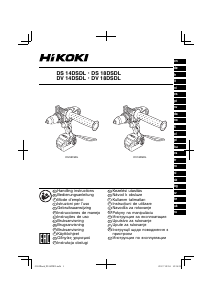


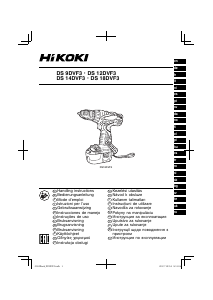
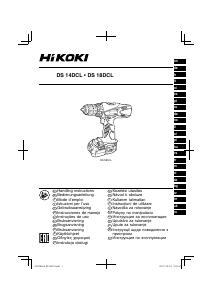
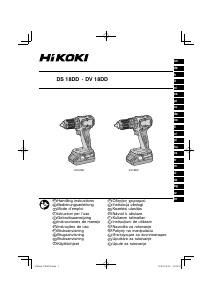
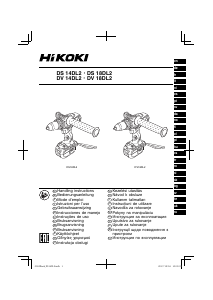
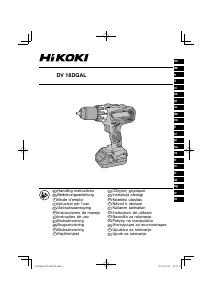
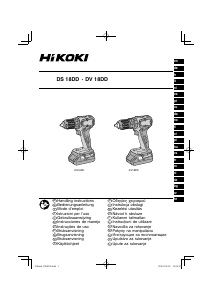
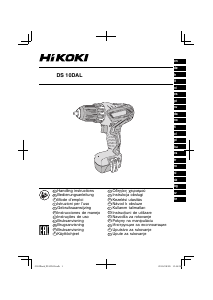
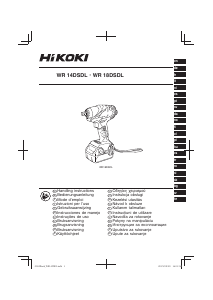
Zapojte se do konverzace o tomto výrobku
Zde můžete sdílet, co si myslíte o Hikoki DS 14DSDL Akušroubovák. Máte-li dotaz, nejprve si pozorně přečtěte návod. Žádost o příručku lze provést pomocí našeho kontaktního formuláře.